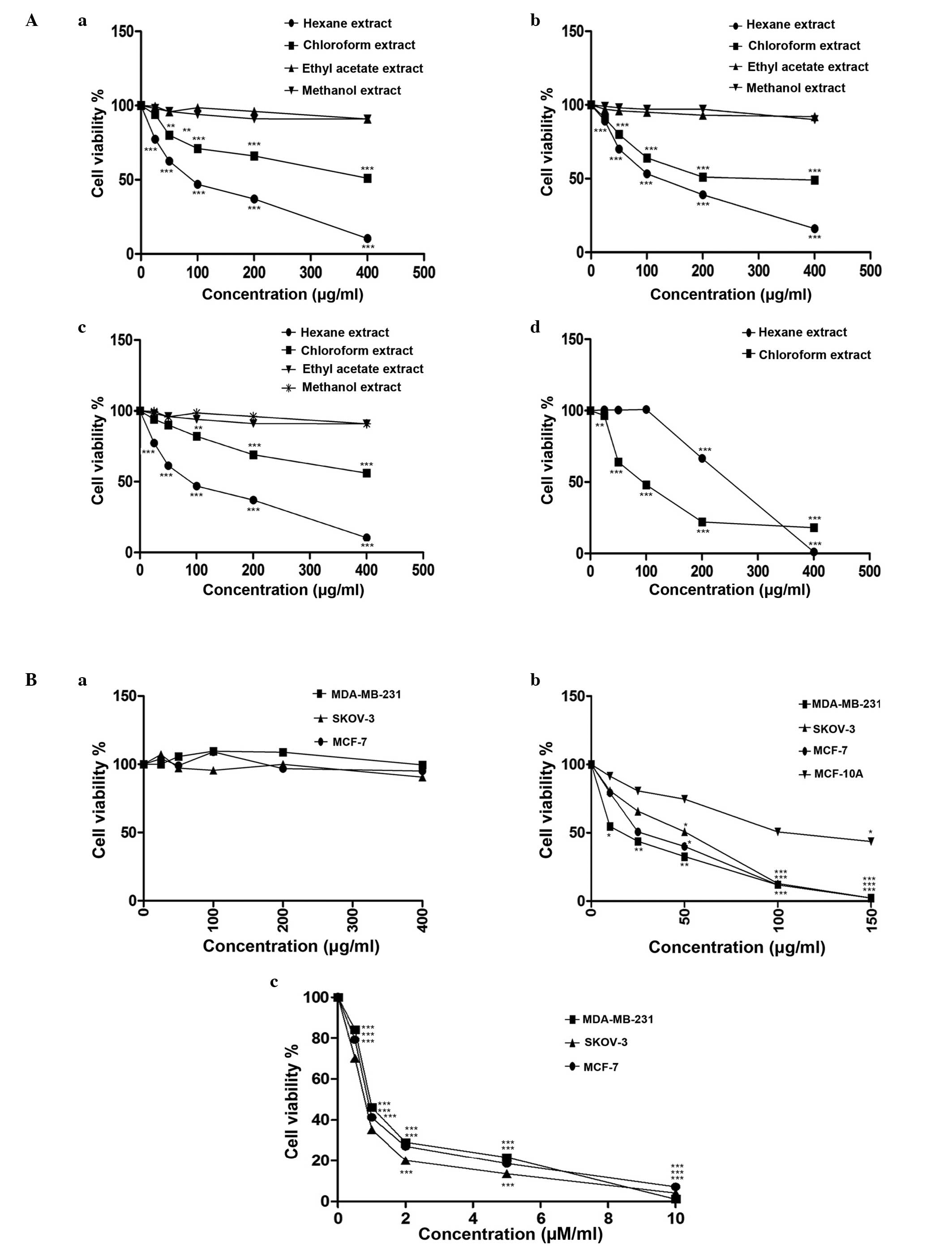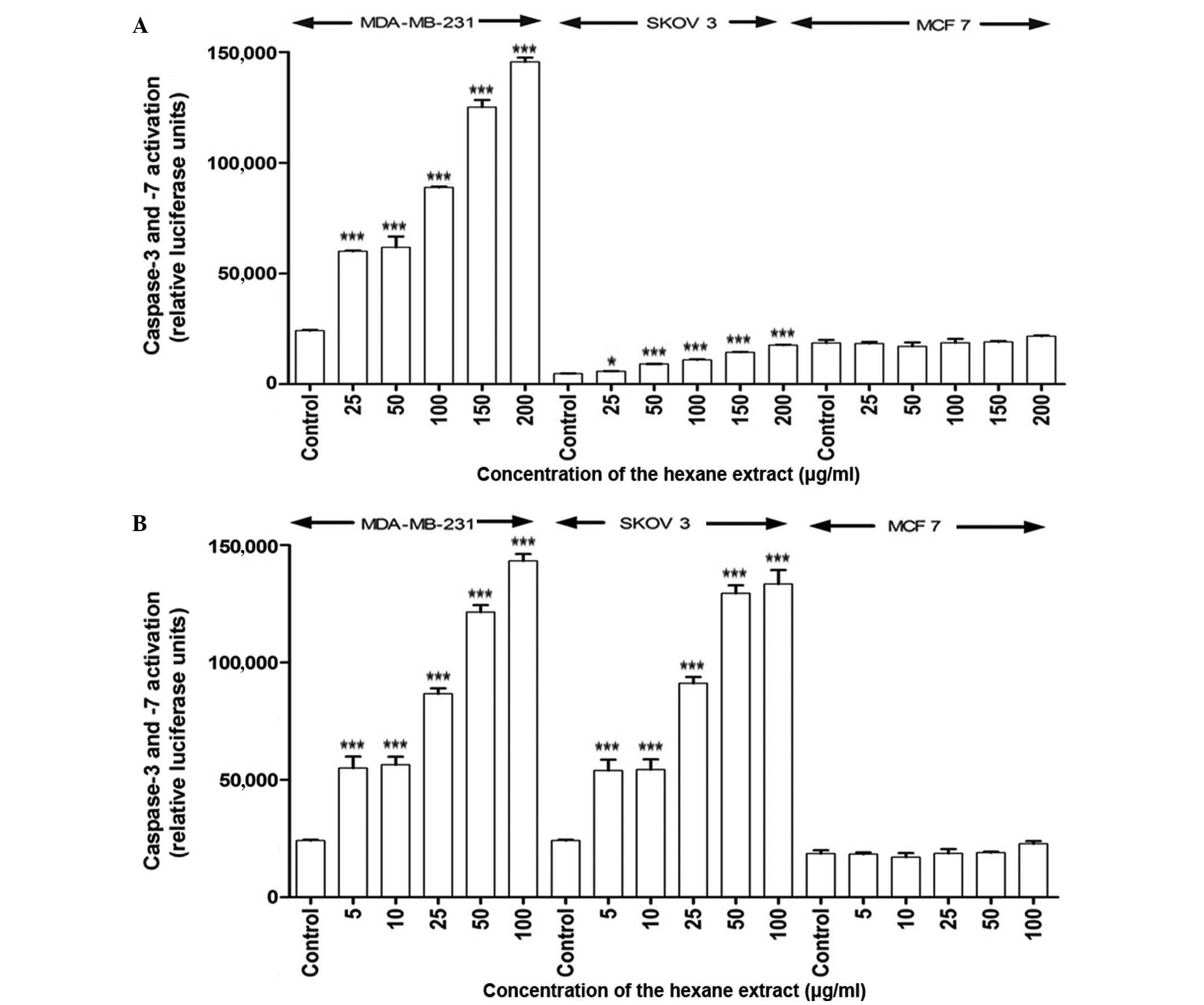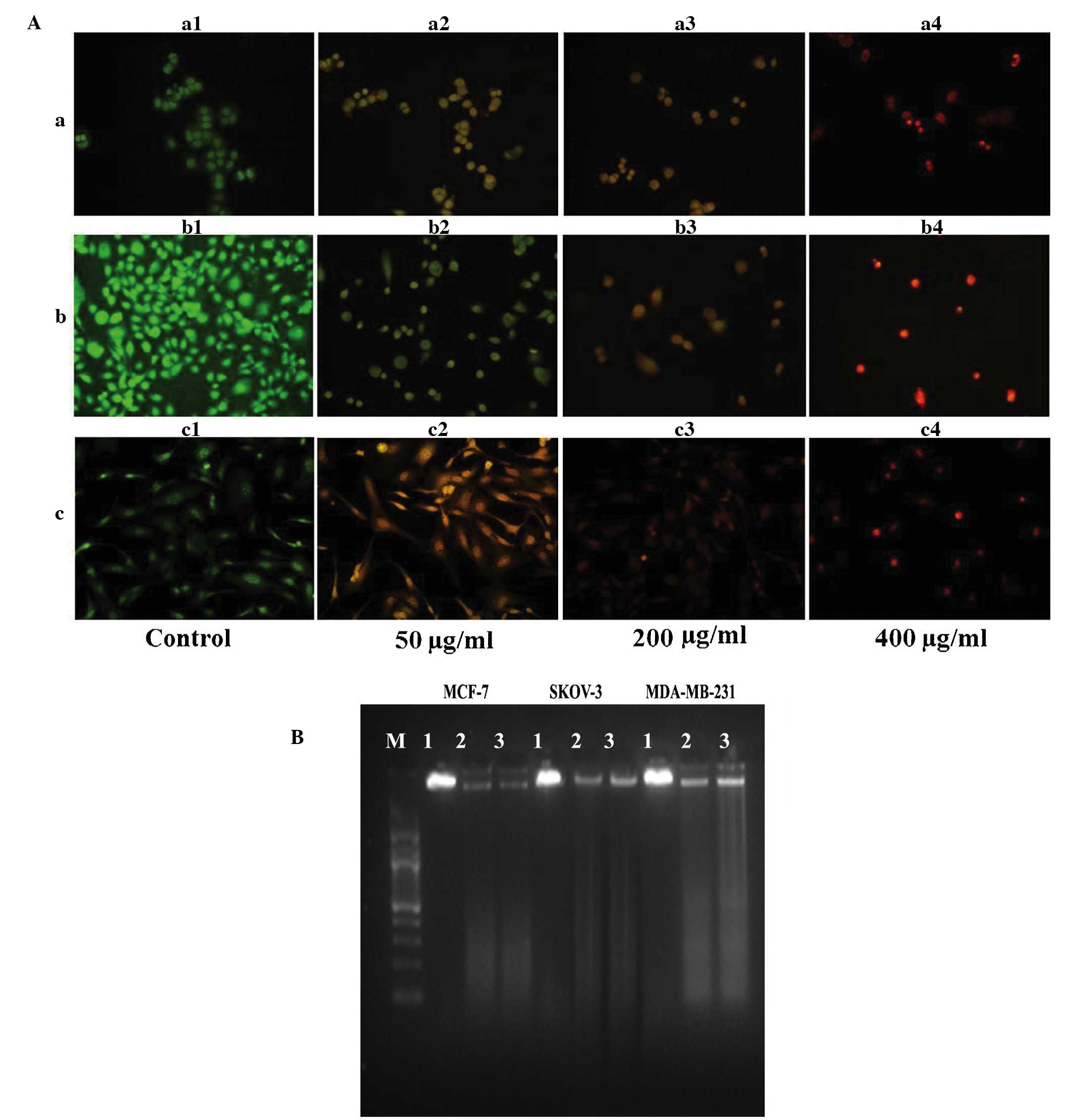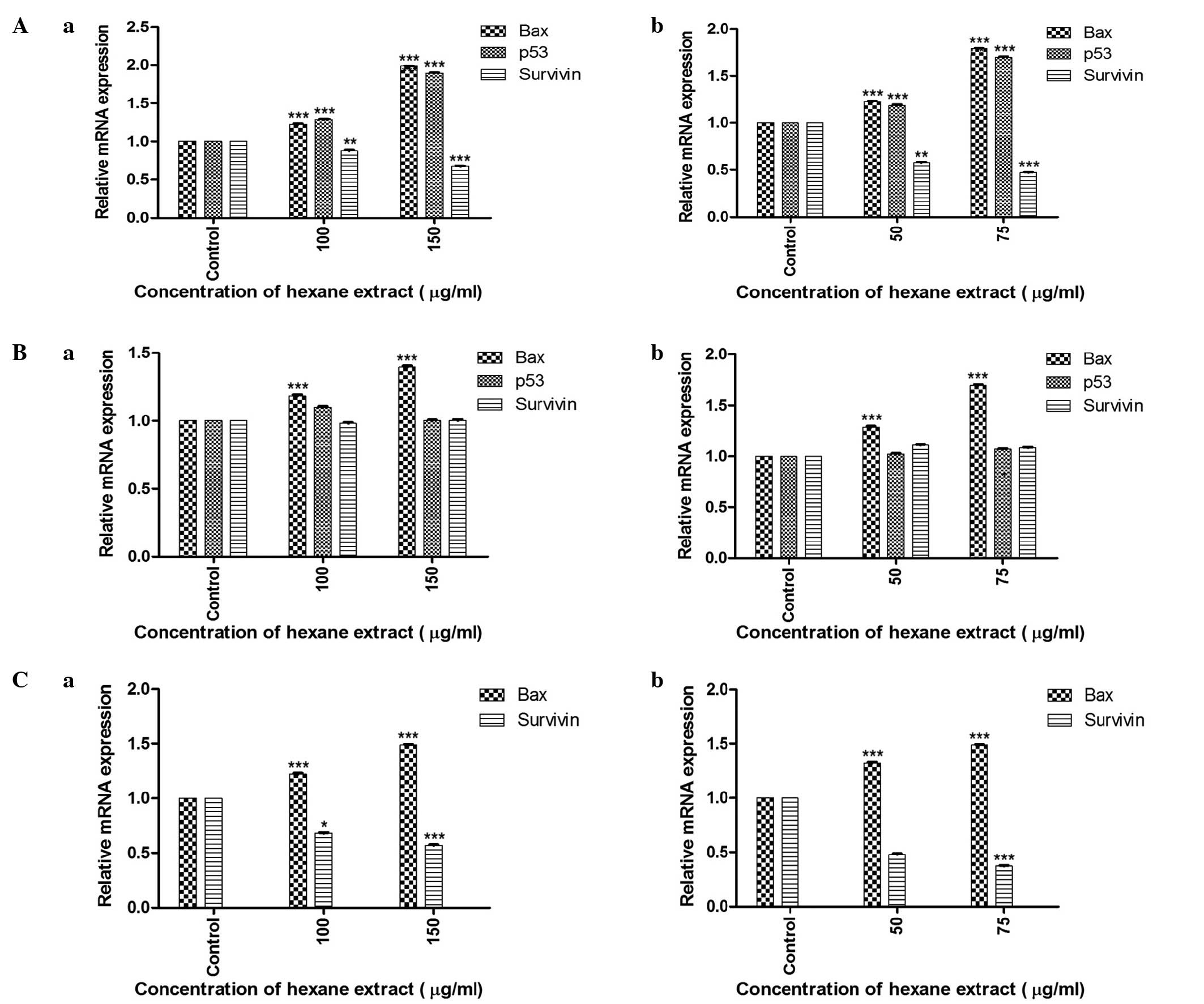|
1
|
National Breast Cancer Coalition: Ending
Breast Cancer: A Baseline Status Report. 2011 Progress Report
(Washington DC, USA). National Breast Cancer Coalition. 2011.
|
|
2
|
Rochefort H, Glondu M, Sahla ME, Platet N
and Garcia M: How to target estrogen receptor-negative breast
cancer? Endocr Relat Cancer. 10:261–266. 2003. View Article : Google Scholar : PubMed/NCBI
|
|
3
|
Li J, Humphreys K, Darabai H, Rosin G,
Hannelius U, Heikkinen T, Aittomäki K, Blomqvist C, Pharoah PD,
Dunning AM, et al: A genome-wide association scan on estrogen
receptor-negative breast cancer. Breast Cancer Res. 12:R932010.
View Article : Google Scholar : PubMed/NCBI
|
|
4
|
Verma S, Provencher L and Rent R: Emerging
trends in the treatment of triple-negative breast cancer in Canada:
A survey. Curr Oncol. 18:180–190. 2011. View Article : Google Scholar : PubMed/NCBI
|
|
5
|
Hurvitz SA and Kakkar R: Role of lapatinib
alone or in combination in the treatment of HER-2 positive breast
cancer. Breast Cancer (Dove Med Press). 4:35–51. 2012.PubMed/NCBI
|
|
6
|
Foulkes WD, Smith IE and Reis-Filho JS:
Triple-negative breast cancer. N Engl J Med. 363:1938–1948. 2010.
View Article : Google Scholar : PubMed/NCBI
|
|
7
|
Coates A, Abraham S, Kaye SB, Sowerbutts
T, Frewin C, Fox RM and Tattersall MH: On the receiving end -
patient perception of the side-effects of cancer chemotherapy. Eur
J Cancer Clin Oncol. 19:203–208. 1983. View Article : Google Scholar : PubMed/NCBI
|
|
8
|
Cragg GM and Newman DJ: Plants as a source
of anti-cancer agents. J Ethnopharmacol. 100:72–79. 2005.
View Article : Google Scholar : PubMed/NCBI
|
|
9
|
Weerarathne WAPG, Samarajeewa PK and
Nilanthi RMR: Genetic diversity of Etamba in Sri Lanka. Trop Agric
Res Ext. 8:107–112. 2005.
|
|
10
|
Herath P, Karunanayake E, Selliah SS and
Wannigama GP: Isolation of mangiferin from the bark of Mangifera
zeylanica. Phytochemistry. 9:11411970. View Article : Google Scholar
|
|
11
|
Gouveia S, Gonçalves J and Castilho PC:
Characterization of phenolic compounds and antioxidant activity of
ethanolic extracts from flowers of Andryala glandulosa ssp. Varia
(Lowe ex DC). R. Fern an Endemic Species of Macaronesia Region.
Indian Crop Prod. 42:573–582. 2013. View Article : Google Scholar
|
|
12
|
Zhishen J, Mengcheng T and Jianming W: The
determination of flavonoid contents in mulberry and their
scavenging effects on superoxide radicals. Food Chem. 64:555–559.
1999. View Article : Google Scholar
|
|
13
|
Kokate CK: Practical Pharmacognosy (4th).
Vallabh Prakashan, New Delhi: 107–111. 2005.
|
|
14
|
Raman N: Phytochemical Techniques (1st).
New Delhi: New India Publishing Agency. 19–24. 2006.
|
|
15
|
Chan EW, Soh EY, Tie PP and Law YP:
Antioxidant and antibacterial properties of green, black, and
herbal teas of Camellia sinensis. Pharmacognosy Res.
3:266–272. 2011. View Article : Google Scholar : PubMed/NCBI
|
|
16
|
Samarakoon SR, Thabrew I, Galhena PB, De
Silva D and Tennekoon KH: A comparison of the cytotoxic potential
of standardized aqueous and ethanolic extracts of a polyherbal
mixture comprised of Nigella sativa (seeds), Hemidesmus
indicus (roots) and Smilax glabra (rhizome).
Pharmacognosy Res. 2:335–342. 2010. View Article : Google Scholar : PubMed/NCBI
|
|
17
|
Ribble D, Goldstein NB, Norris DA and
Shellman YG: A simple technique for quantifying apoptosis in
96-well plates. BMC Biotechnol. 5:122005. View Article : Google Scholar : PubMed/NCBI
|
|
18
|
Livak KJ and Schmittgen TD: Analysis of
relative gene expression data using real-time quantitative PCR and
the 2−ΔΔCT method. Methods. 25:402–408. 2001. View Article : Google Scholar : PubMed/NCBI
|
|
19
|
García-Rivera D, Delgado R, Bougarne N,
Haegeman G and Berghe WV: Gallic acid indanone and mangiferin
xanthone are strong determinants of immunosuppressive anti-tumour
effects of Mangifera indica L. bark in MDA-MB231 breast
cancer cells. Cancer Lett. 305:21–31. 2011. View Article : Google Scholar : PubMed/NCBI
|
|
20
|
Sankari SL, Masthan KM, Babu NA,
Bhattacharjee T and Elumalai M: Apoptosis in cancer - an update.
Asian Pac J Cancer Prev. 13:4873–4878. 2012. View Article : Google Scholar : PubMed/NCBI
|
|
21
|
Bates DJ and Lewis LD: Manipulating the
apoptotic pathway: Potential therapeutics for cancer patients. Br J
Clin Pharmacol. 76:381–395. 2013. View Article : Google Scholar : PubMed/NCBI
|
|
22
|
Pirnia F, Schneider E, Betticher DC and
Borner MM: Mitomycin C induces apoptosis and caspase-8 and −9
processing through a caspase-3 and Fas-independent pathway. Cell
Death Differ. 9:905–914. 2002. View Article : Google Scholar : PubMed/NCBI
|
|
23
|
Elmore S: Apoptosis: A review of
programmed cell death. Toxicol Pathol. 35:495–516. 2007. View Article : Google Scholar : PubMed/NCBI
|
|
24
|
Bajt ML, Knight TR, Lemasters JJ and
Jaeschke H: Acetaminophen-induced oxidant stress and cell injury in
cultured mouse hepatocytes: Protection by N-acetyl cysteine.
Toxicol Sci. 80:343–349. 2004. View Article : Google Scholar : PubMed/NCBI
|
|
25
|
Findley HW, Gu L, Yeager AM and Zhou M:
Expression and regulation of Bcl-2, Bcl-xl, and Bax correlate with
p53 status and sensitivity to apoptosis in childhood acute
lymphoblastic leukemia. Blood. 89:2986–2993. 1997.PubMed/NCBI
|
|
26
|
Mirza A, McGuirk M, Hockenberry TN, Wu Q,
Ashar H, Black S, Wen SF, Wang L, Kirschmeier P, Bishop WR, et al:
Human survivin is negatively regulated by wild-type p53 and
participates in p53-dependent apoptotic pathway. Oncogene.
21:2613–2622. 2002. View Article : Google Scholar : PubMed/NCBI
|
|
27
|
Abeysinghe RD, Greene BT, Haynes R,
Willingham MC, Turner J, Planalp RP, Brechbiel MW, Torti FM and
Torti SV: p53-independent apoptosis mediated by tachpyridine, an
anti-cancer iron chelator. Carcinogenesis. 22:1607–1614. 2001.
View Article : Google Scholar : PubMed/NCBI
|
|
28
|
Rahman K: Studies on free radicals,
antioxidants, and co-factors. Clin Interv Aging. 2:219–236.
2007.PubMed/NCBI
|
|
29
|
Ames BN, Shigenaga MK and Hagen TM:
Oxidants, antioxidants, and the degenerative diseases of aging.
Proc Natl Acad Sci USA. 90:7915–7922. 1993. View Article : Google Scholar : PubMed/NCBI
|
|
30
|
Chai JW, Kuppusamy UR and Kanthimathi MS:
Beta-sitosterol induces apoptosis in MCF-7 cells. Malays J Biochem
Mol Biol. 16:28–30. 2008.
|
|
31
|
Barros FW, Bandeira PN, Lima DJ, Meira AS,
de Farias SS, Albuquerque MR, dos Santos HS, Lemos TL, de Morais
MO, Costa-Lotufo LV and Pessoa Cdo Ó: Amyrin esters induce cell
death by apoptosis in HL-60 leukemia cells. Bioorg Med Chem.
19:1268–1276. 2011. View Article : Google Scholar : PubMed/NCBI
|
|
32
|
Fabiyi OA, Atolani O, Adeyemi OS and
Olatunji GA: Antioxidant and cytotoxicity of β-Amyrin acetate
fraction from Bridelia ferruginea leaves. Asian Pac J Trop
Biomed. 2(Suppl): S981–S984. 2012. View Article : Google Scholar
|


















